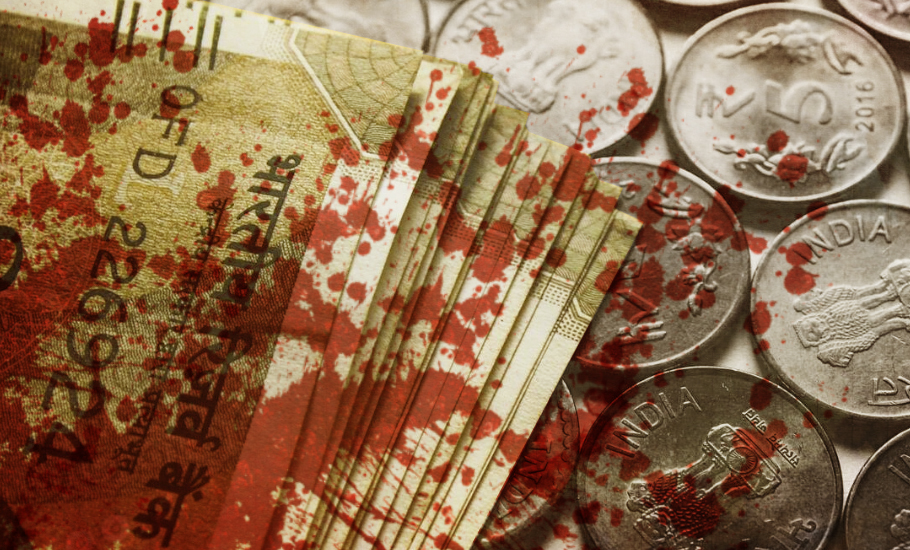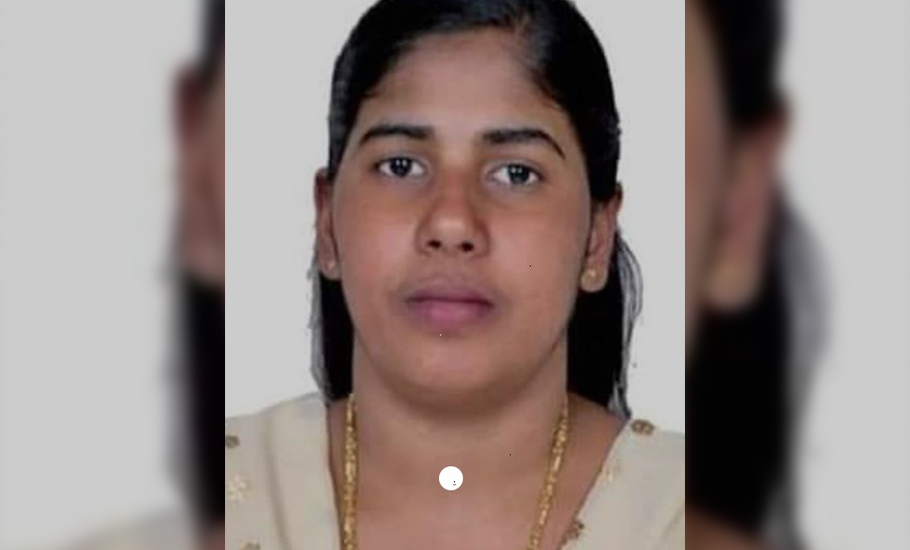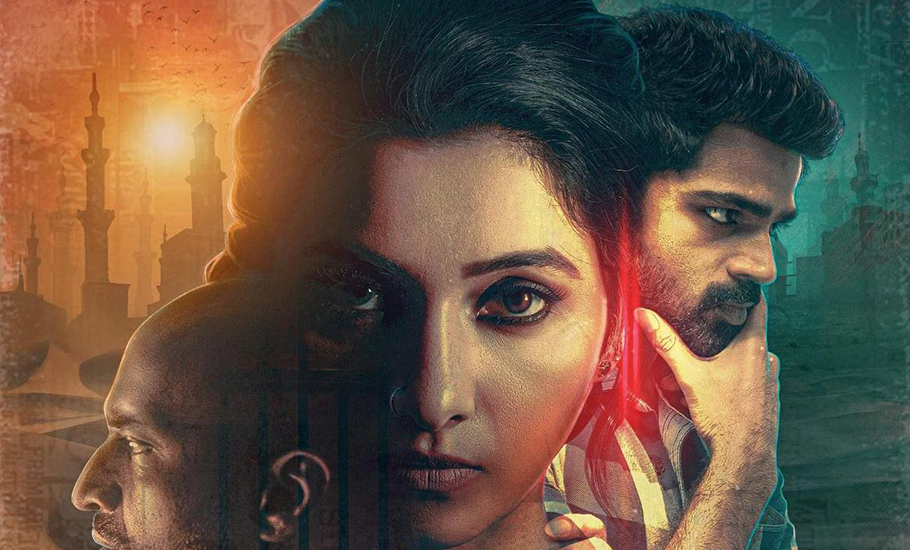
- Home
- India
- World
- Premium
- THE FEDERAL SPECIAL
- Analysis
- States
- Perspective
- Videos
- Sports
- Education
- Entertainment
- Elections
- Features
- Health
- Business
- Series
- In memoriam: Sheikh Mujibur Rahman
- Bishnoi's Men
- NEET TANGLE
- Economy Series
- Earth Day
- Kashmir’s Frozen Turbulence
- India@75
- The legend of Ramjanmabhoomi
- Liberalisation@30
- How to tame a dragon
- Celebrating biodiversity
- Farm Matters
- 50 days of solitude
- Bringing Migrants Home
- Budget 2020
- Jharkhand Votes
- The Federal Investigates
- The Federal Impact
- Vanishing Sand
- Gandhi @ 150
- Andhra Today
- Field report
- Operation Gulmarg
- Pandemic @1 Mn in India
- The Federal Year-End
- The Zero Year
- Science
- Brand studio
- Newsletter
- Elections 2024
- Events
- Home
- IndiaIndia
- World
- Analysis
- StatesStates
- PerspectivePerspective
- VideosVideos
- Sports
- Education
- Entertainment
- ElectionsElections
- Features
- Health
- BusinessBusiness
- Premium
- Loading...
Premium - Events

An Indian nurse on death row in Yemen, blood money negotiations and fading hopes

Prema, a domestic help in Kerala’s Ernakulam, is exhausted. Getting through the day is difficult. The weariness weighs as much on her body as it does on the mind. Even as she cooks and cleans her employer’s house, she anxiously waits for her own daughter to return home. The anxiety has been her constant companion for about five years now. Standing between the mother and daughter is...
Prema, a domestic help in Kerala’s Ernakulam, is exhausted. Getting through the day is difficult. The weariness weighs as much on her body as it does on the mind. Even as she cooks and cleans her employer’s house, she anxiously waits for her own daughter to return home. The anxiety has been her constant companion for about five years now. Standing between the mother and daughter is an uncertain pardon that Nimisha Priya, 33, needs to secure from the family of the man she is accused of murdering.
Nimisha, a Malayali nurse, was sentenced to death and imprisoned in Yemen’s Sana’a on charges of murdering Talal Abdo Mahdi, a Yemeni national. She has been languishing in prison since 2017. A court in Yemen on March 7 dismissed Nimisha’s plea in the murder case in which she, along with another person, is the prime accused (read details about the case here).
She holds another chance to appeal before the Supreme Judicial Council of Yemen, but is unlikely to be spared because the body will only look into procedural errors—if there are any — in the case. What can, however, save Nimisha is blood money—a compensation paid by an offender or his kin to the family of a victim.
For Nimisha, efforts made on that front too haven’t proved fruitful so far.
The Save Nimisha Priya International Action Council, a collective of Indian citizens living world over, has been trying to negotiate the nurse’s reparation for a couple of years now. While pardon in return of blood money is acceptable, it follows a long and hard process.
Under the Islamic Sharia law, the legal heir of a victim can be compensated and in return, the death sentence of the accused could be commuted or waived.
Nimisha’s isn’t, however, the first case where an Indian was left at the mercy of a blood money negotiation and therefore the term is not unheard of in the country even though there are no provisions for such a practice in Indian law.

The Indian diaspora living in countries that follow Sharia law are familiar with the practice of reparation of the victim in exchange of a ‘compensation’ for the victim’s family. The Indian organisations, particularly the Malayali organisations, in Gulf countries often come across requests from families of the accused to help negotiate blood money.
“There is no universally accepted way to negotiate. It is done on a case-to-case basis. As the negotiation is supposed to be done between the families of the victim and the offender, there is very little scope for the intervention of the respective governments,” former MLA KV Abdul Khader, who chaired the Legislative Committee on the Welfare of Non-Resident Keralites, says.
Abdul Khader, who has a long experience in tackling expats’ issues and dealing with their organisations, told The Federal that the negotiation for blood money is a painstaking process the result of which is quite uncertain. “The talks often begin with zero hope. To talk to the family of the victim about pardon is difficult. People agreeing to pardon the offender after accepting blood money should not be viewed as a sign of greed for money. It is based on a moral principle too which they derive from their faith,” Abdul Khader explained.
Sharafudeen, the president of KMCC (Kerala Muslim Cultural Centre) in Kuwait, the largest organisation of Non-Keralites, says exchange of blood money saves two families.
“What we consider is the present situation of both the families. The person who died is gone. If the family of the victim is ready to pardon by accepting blood money, two families are saved,” Sharafudeen says.
KMCC, an outfit of the Muslim League, is actively present in all Gulf Cooperation Council countries.
A recent incident in which the KMCC’s intervention helped was that of Arjunan Athimuthu, a native of Tamil Nadu. Arjunan was sentenced to death in Kuwait for killing Abdul Wajid, his roommate and a native of Malappuram in Kerala, in 2013. A court in Kuwait awarded the death sentence after three years of trial.
The long ordeal of the family of Arjunan in Tamil Nadu finally ended when the KMCC stepped in to help with the negotiations. The victim’s family extended pardon in exchange of blood money and Arjunan’s sentence was commuted to life imprisonment.
“Panakkad Munavarali Thangal (the younger son of late Indian Union Muslim League president Sayyid Shihab Thangal) was the man behind it. He initiated the talks and the victim’s family agreed to pardon and accept blood money,” says Sharafudeen. A total of Rs 30 lakh was raised by the KMCC and handed over to the victim’s family. The recently released Tamil film Blood Money is inspired by the same case.

According to Sharafudeen, the agreement of pardon and acceptance of blood money is made into a written contract which is authorised by the embassy. Although the government or the embassy cannot initiate any process of negotiation for blood money, it plays the role of a mediator to authenticate the transaction, says Sharafudeen.
For Becks Krishnan from Thrissur district who was released from a UAE prison in 2021, blood money offered a second chance at life.
In 2013, Becks was sentenced to death in Abu Dhabi in 2013 for causing the death of a six-year-old Sudanese boy in a car accident. After spending nine years in jail, Becks returned home in November 2021. Five lakh Dirhams (around Rs 1 crore) was paid by the Lulu Group chairman MA Yusuf Ali in blood money to the family of the child to secure a pardon.
“When we are in a deep crisis, God comes in the form of human beings,” Chandrika tells The Federal, referring to the intervention of those who helped get her son, Becks Krishnan, free. Becks recollects that the very process of negation was hard. “Despite the intervention of Yusuf Ali, it took eight years to arrive at a settlement. Everyone knew that it was only an accident and was not intentional,” Becks, who currently works at a private company in Karnataka, tells The Federal.
Soaked in blood
Blood money is not a modern or new form of reparation. It has its roots in ancient Babylonian, Greek, Roman and German laws. The references of an offender paying compensation to a victim for the loss of life and property can also be traced to ancient English and Greek literature as well as religious texts.
During the era of the Anglo-Saxon kings, a mandatory payment known as ‘wergild’ or ‘man price’ was imposed. The term referred to the compensation given to the clan of the victims by the offender. While the concept of ‘forgiving in return of blood money’ does not exist in modern law, it continues to exist in societies where laws are drawn from religious texts.
Nimisha Priya’s case: It’s complicated
Those close to the development say Nimisha’s case is more complicated than any of the previous instances.
“This is a very special case which has no parallel with the cases of release that the Malayali organisations are familiar with in other countries,” says Sajeev, an engineer in Yemen who works with a US-based oil company.
Sajeev, who has been a part of the Save Nimisha Forum since the beginning, says it is very hard even to reach out to the family of the deceased. “Usually in Gulf countries, the negotiation is held directly with the family of the victim. Here, the practice is very different. First of all, the clans of the offender and the victim have to conduct several rounds of talks to reach a consensus. Then only the negotiation with the family begins. This is a very ritualistic practice. In our case, there is no ‘clan’ to represent Nimisha and they do not accept people like us as negotiators,” says Sajeev.
“Even for a pre-negotiation meeting, the tribal leaders of Talal’s community demanded three vehicles and a bunch of AK-47 rifles. This is a country where even ordinary civilians are armed. How can we meet such demands,” Sajeev tells The Federal.
“Usually, the blood money negotiations are held on humanitarian grounds by civil society groups. A government cannot go for such talks as there is little scope in the law,” says TP Sreenivasan, former Indian ambassador and a foreign affairs expert. As Indian law does not approve pardoning in return of blood money, diplomatic negotiations are impossible. However, the embassies in general try to help the citizen groups in achieving the desired result more at a humanitarian level rather than a diplomatic one.
In the absence of negotiations to secure a pardon for Nimisha, her nine-year-old daughter is forced to live in a shelter home in Thodupuzha in Ernakulam. Nimisha’s husband Tomy is an auto-driver and finds it hard to look after the young child.
Nimisha’s mother says they were unable to support the child when classes moved online. “There was only one mobile phone with my daughter’s husband. He found it hard to manage her studies. That is the reason we sent her to a shelter home.”
The child, however, has no inkling about what is happening with her mother. She lives in the hope that her mother would come back and she would once again get to live with her parents.
